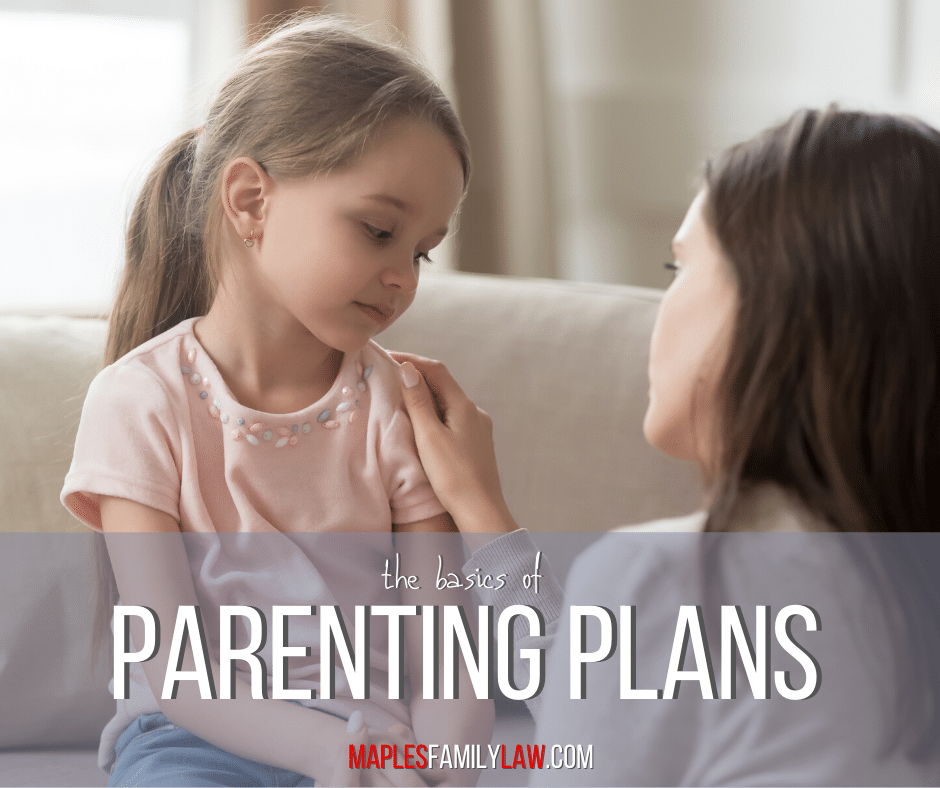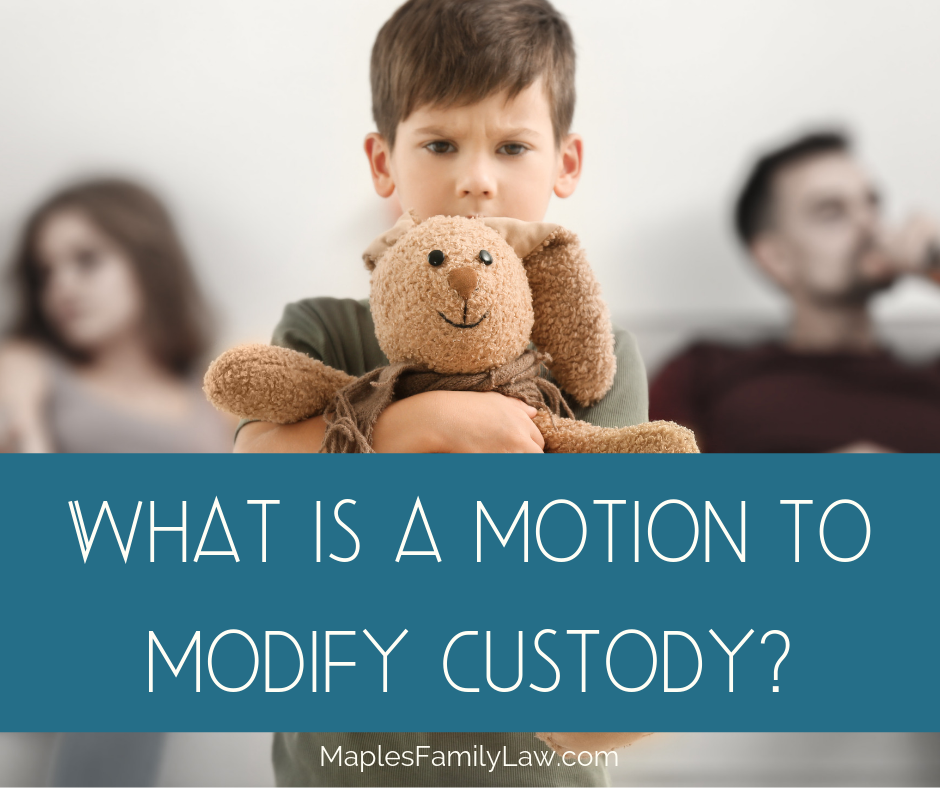
Where Will My Child Live?
For a parent, nothing is more stressful than staring down the uncertainty of a child custody battle. You’re worried about how they will cope, what they will think, and—perhaps most importantly—where they will live.
The bad news is: we don’t know where your child will live. Parenting time decisions are made on an individual, case by case basis, so it’s impossible to predict the outcome of your dispute.
The good news is: California courts want what’s best for your child; and this means splitting your child’s time as close to equal as possible.
If you’re worried about where your child will live, read on to find out more about how California courts determine child custody, and what Maples Family Law can do to help you navigate these important issues.
Child Custody: Where Will My Child Live?
To answer the question, “Where will my child live?” we first have to look at child custody, as a whole.
In California, child custody isn’t just about where a child will live. It’s also about who has the authority to make decisions on behalf of that child, and the power they have to influence how that child will be raised. This division breaks child custody down into two main groups:
- Legal custody
- Physical custody.
A parent who has legal custody has the right to make decisions about their child’s health, schooling, medical care, and religious exposure, and to be involved in all major and minor decisions regarding their child. On the other hand, a parent with physical custody has the right to spend time with their child, and to live under the same roof.
When parents get divorced, the court can no longer assume their child-rearing goals are aligned. As a result, these custody powers must be divided.
Exactly where your child lives—and who gets to make that call—will hinge heavily on how the court divides these powers.
Dividing Child Custody: Joint vs. Sole
In dividing child custody, California courts have options. They can either make parents share, or give power to one parent, alone.
- Joint custody occurs when parents must share power.
- Sole custody occurs when only one parent has authority.
Both legal and physical custody can be either shared, or given to only one parent, alone.
As a general rule, California courts will almost always divide legal custody equally between parents. Joint legal custody gives both parents an equal say in things like health, education, how their child will be raised. Judges won’t award sole legal custody unless it’s absolutely in a child’s best interest (usually in cases of abuse or neglect).
Physical custody, on the other hand, is another matter. Due to busy schedules, distance, and a myriad of other factors, dividing a child’s time equally between parents can be challenging.
That being said, it’s also pretty dang important, because the division of physical custody plays a huge role in where your child will live.
Sole Physical Custody
A parent with sole physical custody is the primary caretaker for their child, and has a lot of discretion in deciding where their child will live. In California, this often goes hand in hand with sole legal custody (though, not always).
A sole custody parent is still bound by the other parent’s visitation order, however, so they can’t relocate out of state without judicial permission. If an out of state move was requested, the court would revisit the custody order, to see if another visitation arrangement would work better.
Joint Physical Custody
Joint custody is favored by California courts. However, even when both parents are qualified, it can still be difficult to split time exactly 50/50.
Luckily, you don’t have to have a perfect split in order to have joint custody. California courts will consider your arrangement “joint,” so long as your child spends a significant amount of time living with both parents.
A parent who has the greater share of time is sometimes called the “custodial parent,” or “primary residence parent.” (In contrast, the parent with less time is the “non-custodial” parent.)
Custodial parents have primary custody over their child, and as such—so long as they stay within certain geographic boundaries—have a lot of sway when determining where their child will live. Like with sole custody, however, they’re still bound by the other parent’s visitation order, and are still required to involve the other parent in all major decisions.
Child Custody Factors
When it comes to making these custody decisions, California courts will analyze a number of different individualized factors, and choose the outcome that will serve your child’s long-term health and happiness the best.
To figure out what outcome that might be, California courts will consider:
- The child’s age;
- The child’s mental and physical health;
- The child’s emotional needs;
- The child’s relationship with each parent;
- Each parent’s ability to care for their child;
- Each parent’s health and finances; as well as,
- Any history of domestic violence, abuse, or neglect.
In addition, California judges may consider a child’s preferences, if they are at least fourteen years old. However, this doesn’t mean the child will get their way.
A child is still a minor until they reach eighteen, and teenagers don’t always know what’s in their own best interest. Hence, judges have the authority to overrule these wishes, and pick the arrangement that will ultimately be in the child’s best interest.
Child Custody Modification
California lawmakers are aware that life doesn’t always stay the same. Change happens, and what works now might not in the future, which is why they’ve provided a way for you to modify your custody arrangement.
Both custodial and non-custodial parents are allowed to petition to modify custody. However, for the court to consider this request, there needs to have been a significant change in circumstance.
Situations that often qualify for this consideration include:
- A change in career, death in the family, or other illness requiring significant attention.
- A parent has put their child in a dangerous environment.
- A new relationship puts the child in harm’s way.
- A custodial parent is not complying with a visitation order.
- A custodial parent has failed to provide their child with proper care (such as, repeatedly missing doctor’s appointments, or arriving late at school).
A custody modification essentially opens both parents up to scrutiny from the court. So it’s important not to make frivolous requests (otherwise, the results could backfire).
Judges will evaluate new evidence, and either approve or deny the change, based on what would be in the child’s best interest.
Child Custody Attorneys in California
Your custody arrangement can’t work, unless it’s unique to you. Which is why it’s so important to have a family law attorney that you know and trust; someone who isn’t afraid to fight for your child’s best interests.
If you have more questions about custody, and where your child will live, we want to hear from you. Call the Maples Family Law team at (209) 989-4425, or get in touch online, and let us help find the arrangement that’s right for your child.





